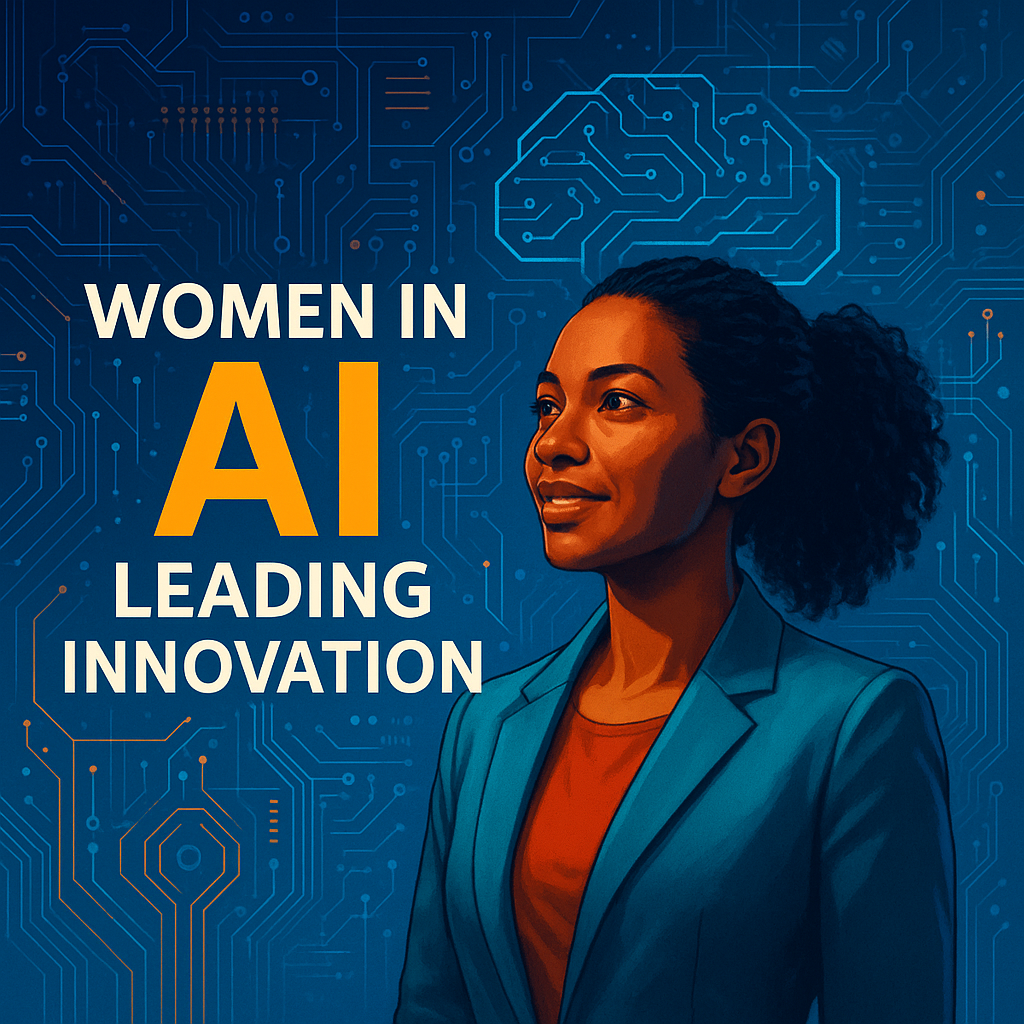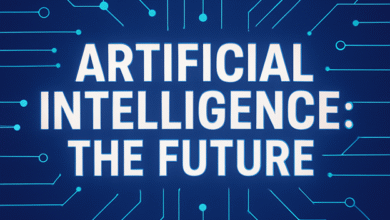Women in AI: Cracking the Code, Leading Innovation, and Shaping future of Technology

In the world as we are experiencing it today, artificial intelligence (AI) and machine learning are transforming businesses, industries and societies. This is dramatically happening due to the innovation in the usage of technology which is rapidly taking place. However, there is still one area where the balance is missing and that is women serving in the field of AI. Female leaders in AI are breaking stereotypes and leading revolutionary studies, and they are proving the importance of making the world of AI inclusive so that it can be smart. Although women in the AI field are still fighting major obstacles, it is clear they are remarkably changing the dynamics.
This blog will therefore cover issues on the role of women in AI, women who have shaped the field of AI, the gender gap in technology, and how empowerment of women in AI can make the future of ethical and inclusive innovation possible.
The Current Landscape: Where Do Women Stand in AI?
Although AI is developing at one of the fastest rates, the number of women attending AI is still shockingly low. The World Economic Forum states that only 22 percent of global AI practitioners are women. The same disparities are reflected in such tech-intensive economies as the U.S., the UK, and India.
The problem is not the lack of talent, but an imbalance in systems in terms of gender in tech:
- Researchers in the area of machine learning are 12% women only (Element AI Report).
- Only 15 % of the research on AI in papers is written by women.
- There is an increased dropout rate in women in STEM because of bias, lack of mentorship, and equal opportunities.
Such disparity does not only apply to career opportunities but also to ethical AI development because different voices lead to different viewpoints in data and design of AI solutions.
Pioneering Women Who Are Leading in AI

Despite of many challenges, there are a few very adorable examples of women in technology who have become leaders, researchers, and innovators in the field of AI:
- Fei-Fei Li, Co-Director of Stanford Human-Centered AI Institute
Fei-Fei Li is one of the most notable personalities in the AI sector and she lead the development of ImageNet, which transformed deep learning. She is an active human-centered AI and gender representative in tech.
- Joy Buolamwini -Algorithms
Her work proved that facial recognition tools are biased. It caused companies such as IBM and Amazon to reconsider their software. She advocates fairness and accountability of AI.
- Kate Crawford-AI Ethics Researcher
Kate is the author of Atlas of AI and criticizes the system of AI and data gathering that contributes to social inequities. Her job is to influence the AI policies around the world.
- Timnit Gebru -Black in AI
She is famous as a researcher of linguistic bias in machine learning models and has been prominent in highlighting faults in the development of AI at large in Big Tech companies.
Why We Need More Women in Artificial Intelligence
The following are the reasons why closing the gender gap in AI is not just a diversity initiative: it is a technological necessity:
1. Improved Innovation: Several teams that are diverse perform better. According to a study carried out by Harvard Business Review, people in inclusive team work 35 percent better than others.
2. Development of AI: Ethics involving women more removes the chance of building systems that will result in an unfair outcome, particularly when it comes to medical tasks, employment, and monitoring.
3. Equilibrium Data Sets: The increased participation of women in AI leads to the creation of a more inclusive AI that does not affect other groups of individuals.
Barriers Faced by Women in AI and Tech
Most women are still unable to adjust with the following challenges despite the success stories:
- Gender discrimination in employment and career promotion.
- Tech differences in pay .
- Lack of funding in female-led AI startups.
- Limited guidance and networking services.
Such obstacles can also be termed as the leaky pipeline, which is a situation in where women quit their jobs in the tech sector more frequently than men based on burnout, discrimination, and a lack of mentorship.
Women in AI Startups & Research: Making an Impact
A new trend is that more and more women are launching their own AI startups that solve practical issues:
- Clara Analytics (Dheeraj dee Gunasekaran & women leadership team): healthcare in AI-powered solutions
- Zindi Africa: Established by Celina Lee, one of the co-founders, it is a site that allows African women to explore and learn more about data science.
- TARA.AI: Under the leadership of Iba Masood, it automates product management and hiring.
Women in academia are efficient and delivering revolutionary work on the topics of AI ethics, natural language processing, and computer vision which also makes the AI revolution not only fast, but also fair.
Empowering Women in AI: What Needs to Change
To establish gender diversity in the area of technology or, most precisely AI, it is vital to introduce changes in the systems. Let us speak about some proposals which should be worked on:
- Early STEM Education for Girls:
Early STEM Education Encourage young girls in the schools, school activities, workshops and clubs to learn about coding, robotics and data science at early grades.
- Mentorship and sponsorship programs:
Link up women to the industry mentors who offer guidance and opportunities and female leaders.
- Encourage female chief research and startups:
Whether it is startups or AI research led by female scientists, the funding bodies should prioritize them.
- Representation under AI Policy-Making:
Have more women make the decision when defining the future of AI regulation and governance.
Global Movements Supporting Women in AI
Organizations worldwide are coming up in favor of this cause:
- Women in AI (WAI): A global non-profit that sets out to increase female representation in AI.
- Girls Who Code: Educating strong young girls on computer science.
- Black in AI: Raising their voices in favor of diversity and inclusion when it comes to the creation of AI-Innovation.
- Women Who Tech: It is a funding platform and networking foundation that supports women-led technologies.
How You Can Help
Whether you’re in the field of technology or not, let’s discuss how you can contribute to empowering women in AI:
- Publish the research and the studies conducted by women in the field of AI.
- Advise or guide other females in technology.
- Promote inclusive policies at your workplace.
- Invest in projects that promote the study of STEM by women.
Conclusion
The road to achieving AI equity would be long yet the steps taken by the women in artificial intelligence field are going to carry the path. Women are pursuing AI with a sense of ethics, empathy, and excellence. It doesn’t really matter whether they are early innovators and just started with learning AI or founders of the next generation of startups.
Just as we continue to venture into the AI-driven world, it is sensible to keep in mind the fact that intelligence is not a gender issue. Empowering women in AI will make sure that technology will serve the whole of humanity and not just for one segment only.



